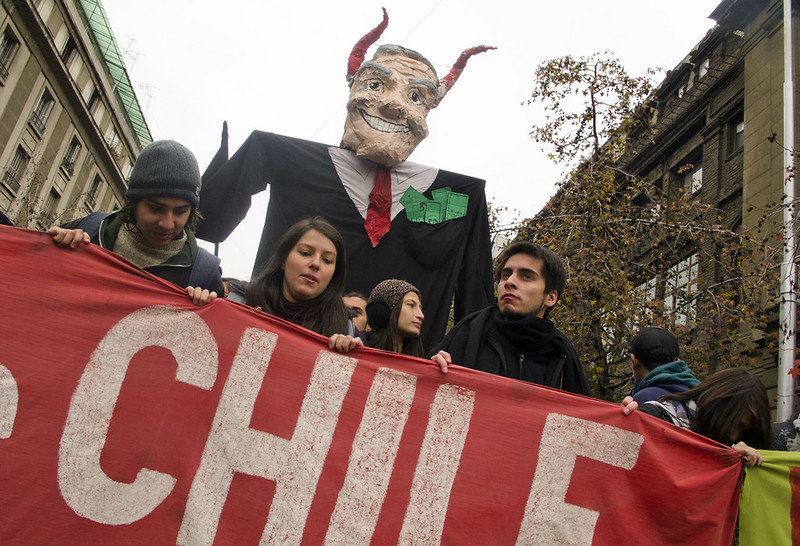Results and impacts on present and future politics
It is highly unlikely that there will not be a shift towards a strengthening of the neoliberal model in the ambits of political power.
In this scenario, the question is whether this situation of right-wing power will be enough to allow a strong and genuine attempt to bring together the different anti-neoliberal, popular, feminist, environmentalist, dissident and humanist forces at the grassroots level; paradoxically, it was not seen as something certain that such a rapprochement would take place if the Apruebo had triumphed.
The only evident certainty is the hollowing out of people who organically participate in political and social institutions, a situation that has been taking place over the last decade, which seems to leave the creation of reality in the hands of the power of the media and virtual platforms.
Those of us who believed in the inorganic awakening of 2019, and its possibilities for political influence, beyond what a moderately vigilant analysis dictates, the experience up to this point alerts us to what we knew, but chose to ignore.
In the same sense, the surprising number of people filling the Alameda at the closing of the Apruebo, contrasted with the result of the plebiscite.
So, however difficult the task of achieving positive changes for the interests of the majorities may appear to be, there is no other possibility than for change to come from the grassroots, organised, clarified and with an image of a shared future.
The social movements and anti-neoliberal political organisations need to develop their capacity to generate ambits of encounter, to work on common directions and concrete elements of convergence, which will allow for organisational and political project articulation and development.
Immediately and urgently, we need the profundity to see those who voted Rechazo with compassion and tenderness. We are clearly a damaged society, trying to process the damage we have suffered for decades.
It is not all misfortune, losing also reminds us that we were always in the minority, and to continue lamenting is disrespectful to the 4.8 million people who believe that Chile can and needs to be different.
It seems that some parties have their sights set on influencing those negotiating tables that are being set up these days, reading the vote as support for these bodies, without asking themselves what could be said in these spaces that would generate an echo in the people who voted against the proposed changes, thinking of a different society?
Meanwhile, in the streets, the new generations are rising up afterwards, once again talking about a Sovereign Constituent Assembly. There is another look, a new conception of reality.
The unpostponable task of the good people will be to help our society to overcome fear and individualism, which is proclaimed in concert by all the press and mass media in the hands of the right wing. Their ill-gotten money has been put to work in abundance in the lies and in the tools of creating realities in which the majorities are disqualified from participating as protagonists.
In other words, it is necessary to bet on the renewal of political power with binding participation and social networks, not virtual but of affection and future projection, which contribute to the recomposition of the social fabric.
In the face of this representative democracy, the way out will be real and participatory democracy, which will enable the implementation of public policies for rapid and substantive change in the concrete issues that have made broad layers of Chilean society precarious.
Collaborative writing by Angelica Alvear, Guillermo Garcés, César Anguita, Natalia Ibáñez, Odel Soto, Natalia Canto, Sandra Arriola Oporto and Elizabeth Bravo. Political Commission.












